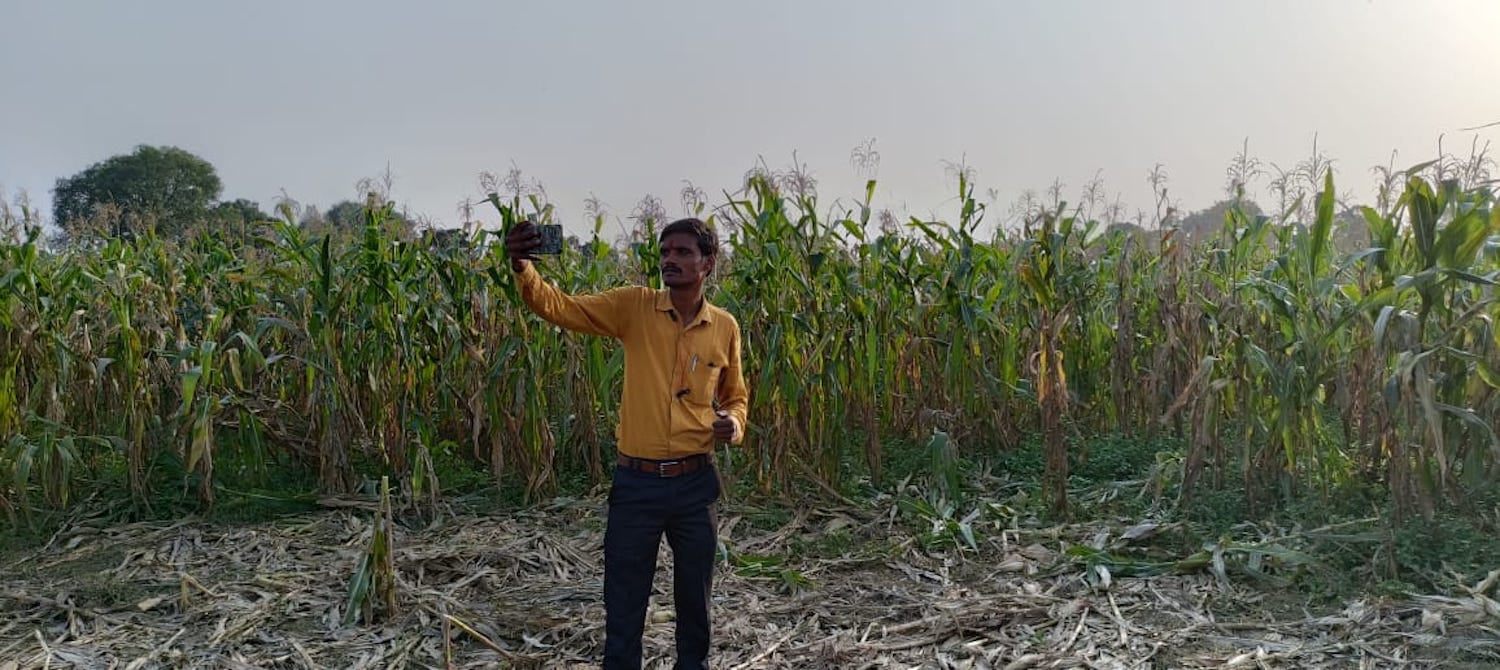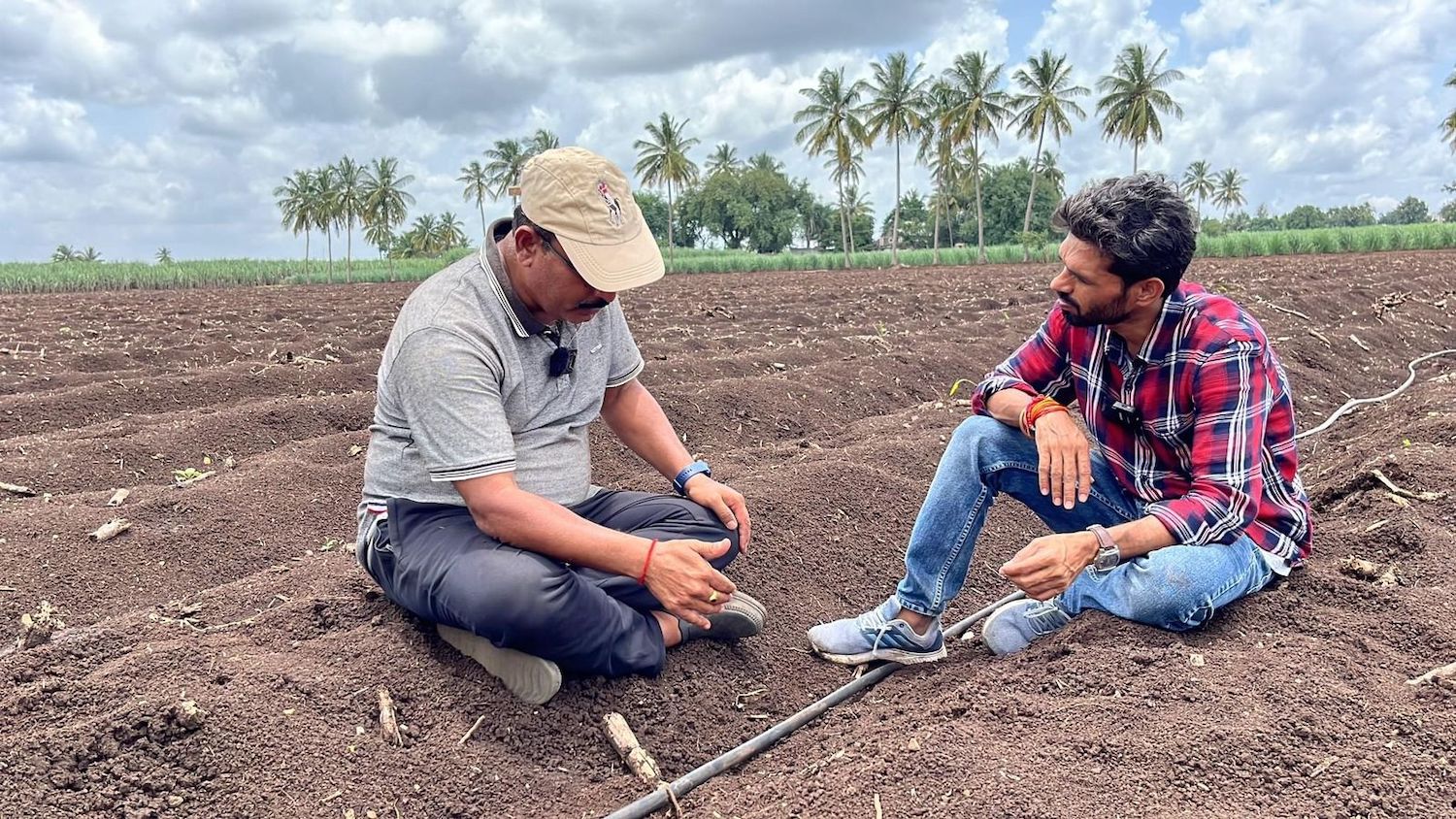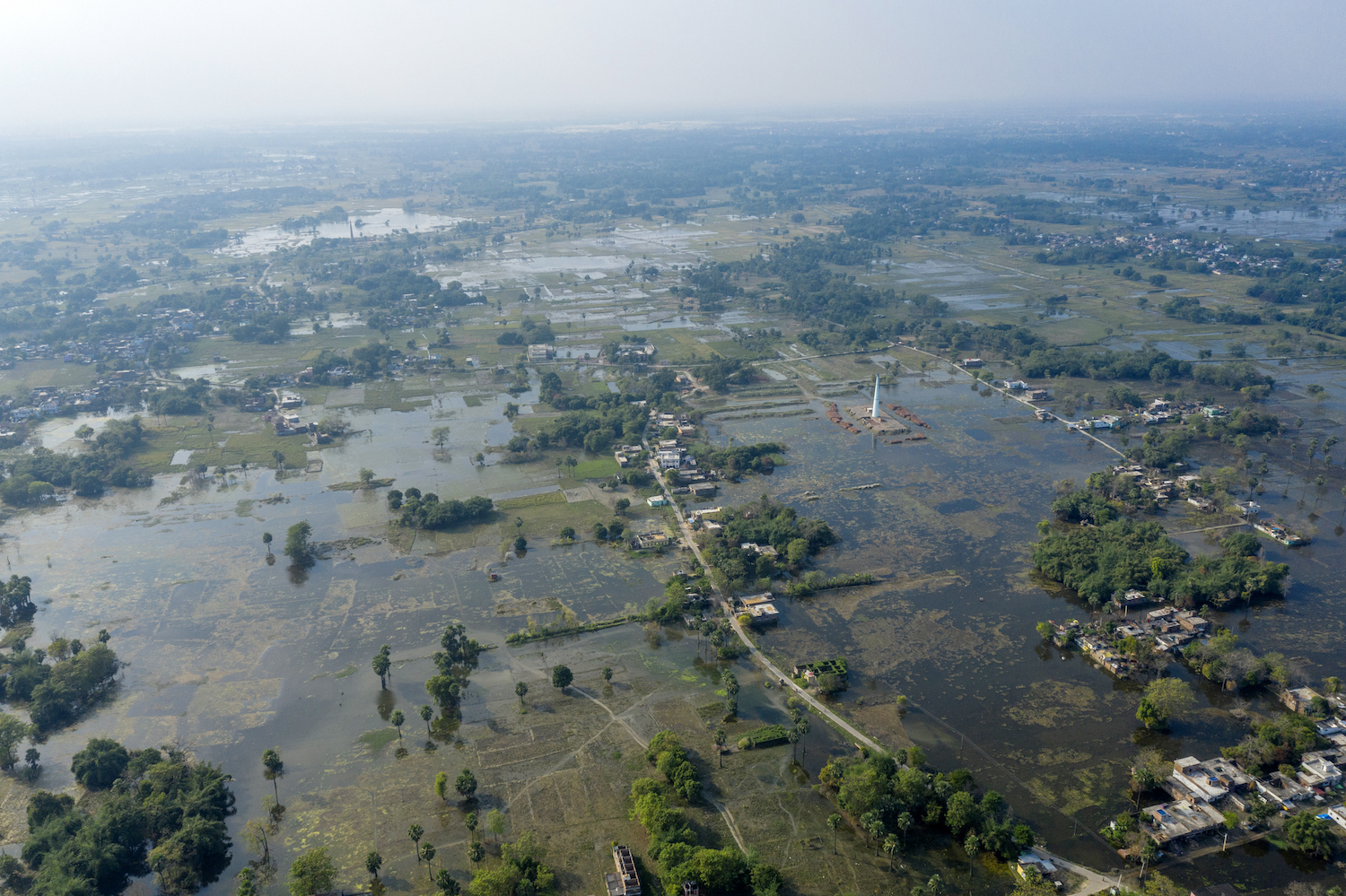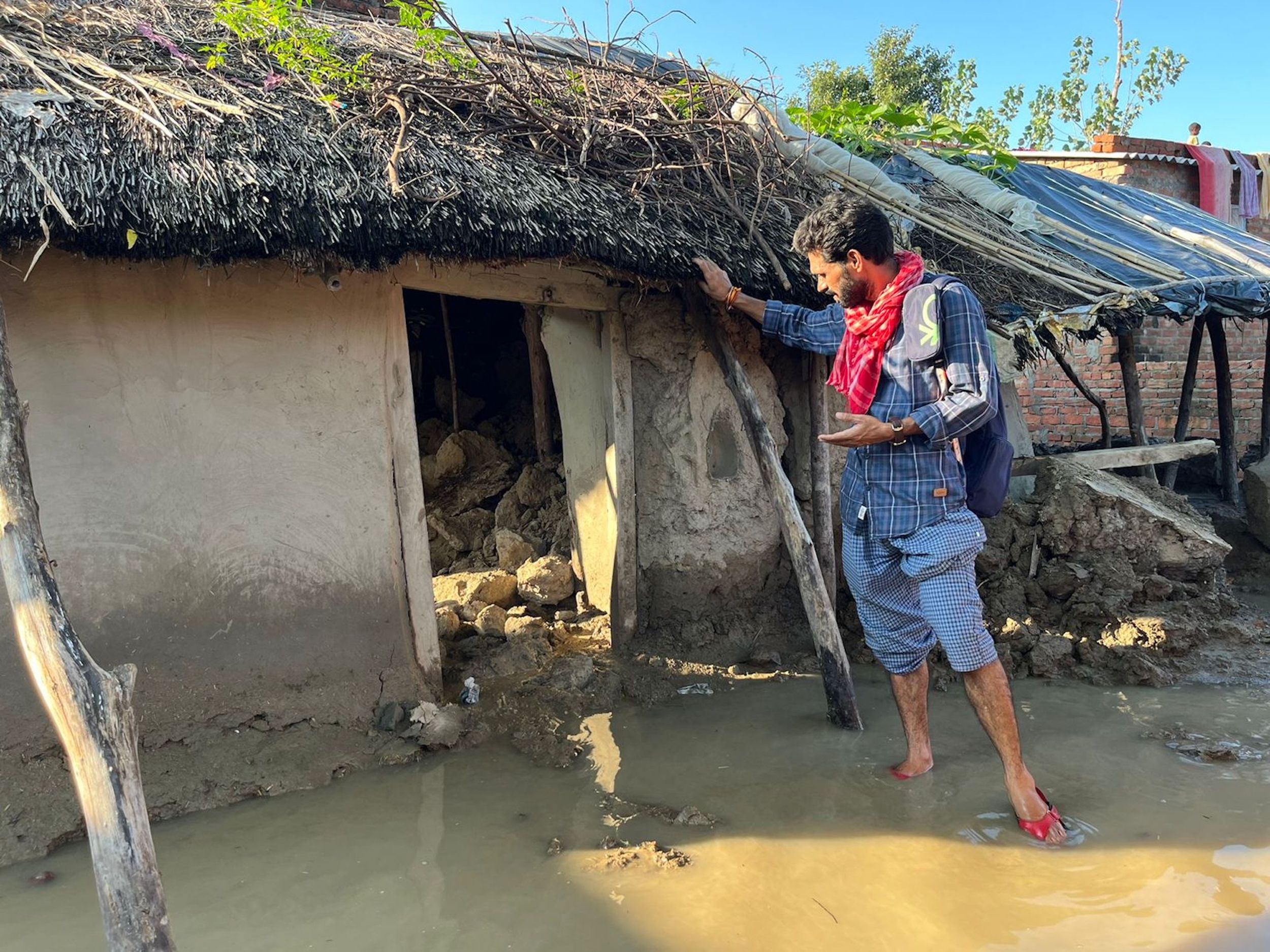Local journalists are key to informing the public about the devastating dangers of climate change but, in India, a lack of knowledge, training and access to expert sources is holding them back
When Shubham Srivastava, an independent journalist from Kasganj district in Uttar Pradesh, decided to cover a story about how people in his village were living without electricity in 2022, he did not know it would turn into a story about climate change.
During the peak of summer, the village was enduring heat of up to 52 degrees Celsius but the link between the extreme heat and lack of electricity had not been made. Soon, however, Srivastava’s story for a small web news outlet about the electricity shortage was picked up by more mainstream media.
“My story was only on the electricity problem in the village and my editors added the heat angle to it. I was not aware of the heatwave before this,” he says. “The story was then picked up by MIT and other outlets who added the climate change angle. The story was now on another level.
“We come from a small background and terms like ‘climate change’ reach late to us but journalists like us are now being asked to report on it,” he says. “If we are provided with training by the experts then we can bring the best of stories. Until this year I did not know about the training modules by international news organisations for freelance journalists. Unfortunately, their programmes are in the English language and it is a very distant dream for journalists like me.”

‘We Need the Knowledge’
Another journalist who would like to report on climate change stories in India is Azeem Mirza. He works as a freelancer and stringer for a national news agency and says there are many stories around this issue, but he faces problems in identifying them.
“I hail from an area that is surrounded by a national wildlife sanctuary and I know there are many stories on climate change that could be done. Last year a leopard died due to the heatwave and we were not able to identify the heatwave as a problem behind the death so we reported it as a straight story about a leopard death. The copy could have been something else if I knew that heatwaves are also linked to climate change,” says Mirza.
“We understand that this is going to unfold into one of the biggest environmental crises of our times and its impact on human beings is going to be very devastating but we do not know how to report on it. Last year, there had been an unexpected rainfall in the summers and the farmers were left confused about what was happening with the weather. I discussed this problem with someone in the journalism industry and a couple of days later that story appeared in a leading portal. It was my story, but I had no idea how to report it.
“The other problem that we face is that when we talk to people in the story they expect that there will be some sort of impact but when there is nothing they do not talk to us again or share tips with us,” he adds.
Last month, a workshop on the use of data in climate change stories that I and other journalists attended found that reporters based in smaller Indian cities faced the problem of finding stories in which climate change intersects with other issues.
Climate change stories should not be confined to only the increase or decrease of rainfall using just scientific or anecdotal evidence but should be done with full diligence finding appropriate angles to connect with their audience.
Many stories about "climate change" did not provide any scientific backing and were only based on anecdotal evidence. “Climate change intersects with various areas like agriculture, gender issues, health and crime, so finding an intersection, linking the story with that, and backing up with data and scientific evidence will make the case study stronger but unfortunately reporters in India do not get such training where they can learn these aspects.”

Minimal Access to Reliable Sources
Mirza also realised that independent reporters who report from the countryside or remote areas of India do face problems in proper attribution and finding experts to talk to.
Arvind Shukla, a freelance journalist who runs his own YouTube channel called News Potli, says he believes that lack of editorial support from the mainstream media is holding freelancers back on this important beat.
“Publications today want everything from a reporter. From data to peer-reviewed papers [as sources] but for a reporter who is based in a very remote district of India this is not possible in over 90% of cases and this is one of the main reasons that reporters are not taking much interest in reporting on climate change issues,” Shukla says. “If newsrooms start supporting these reporters then I am very sure that the issue of climate change would be reported by every freelancer because people have now started understanding that climate change is very real.”
Shukla adds: “The lack of literacy on climate change issues is a big problem and much work needs to be done on the ground instead of in papers, and speaking highly in climate-related seminars and conferences. If we are able to equip and enable our reporters to report on climate change issues then we will be able to see the change.”
If we are provided with training by the experts then we can bring the best of stories. Until this year I did not know about the training modules by international news organisations for freelance journalists. Unfortunately, their programmes are in the English language and it is a very distant dream for journalists like me.
‘Training Local Journalists is Critical’
Mayank Aggarwal, a member of The Reporters' Collective, who trains working journalists and journalism students on climate change and environmental reporting says: “Reporters working in small towns or rural areas must be trained on climate change and allied issues. These reporters end up reporting on every issue in their areas whether it is agriculture, health, heat, rainfall and water, fisheries near coastal areas, energy projects including decentralised energy, forests, rural economy etc.”
Aggarwal explains that most of these subjects intersect with climate change and environmental issues, and can help to record the impact of climate change on the daily lives of people, and their livelihoods or as part of the mitigation and adaptation efforts towards tackling climate change.

“In such a scenario, where the impact of climate change is becoming an integral component of all kinds of stories from these areas, it becomes vital that the reporters are comprehensively trained so that they properly understand the intersection and report about the subjects they are covering,” he says.
“In the absence of such training, they are not able to fully grasp what is happening and are not able to fully explain the changes in their stories. This results in stories that are not completely comprehensive.
“Sometimes I have come across some of my journalist friends who are either overusing climate change as a term or using it without context. The impact of such practices is that the term loses its relevance and people lose interest due to overuse.”
Training local journalists to report accurately on climate change and to identify stories about the issue is essential, he says, because comprehensive reporting from all parts of the country will lead to a more informed audience. “An informed audience will lead to a better conversation between different stakeholders - people and policymakers. An informed audience and improved conversation will then certainly lead to informed policymaking that addresses the issues related to climate change,” he adds.
Training could be formulated in two parts - basic and advanced. “As part of the basic training, the focus needs to be on climate literacy through which reporters are introduced to concepts of climate change, the associated terms and how climate change is intersecting with every sphere of life.
“It is important because rather than treating climate change as a separate subject for reporters it needs to be integrated into most of their usual stories whether it is health, livelihood, etc.”
Training should be carried out with the help of senior journalists, researchers and scientists, civil society experts and even government officials, Aggarwal advises.
“Then, after slowly building capacity for some time, the training needs to be taken to the advanced level where they are trained for climate verification to tackle misinformation, disinformation and greenwashing claims.”








































